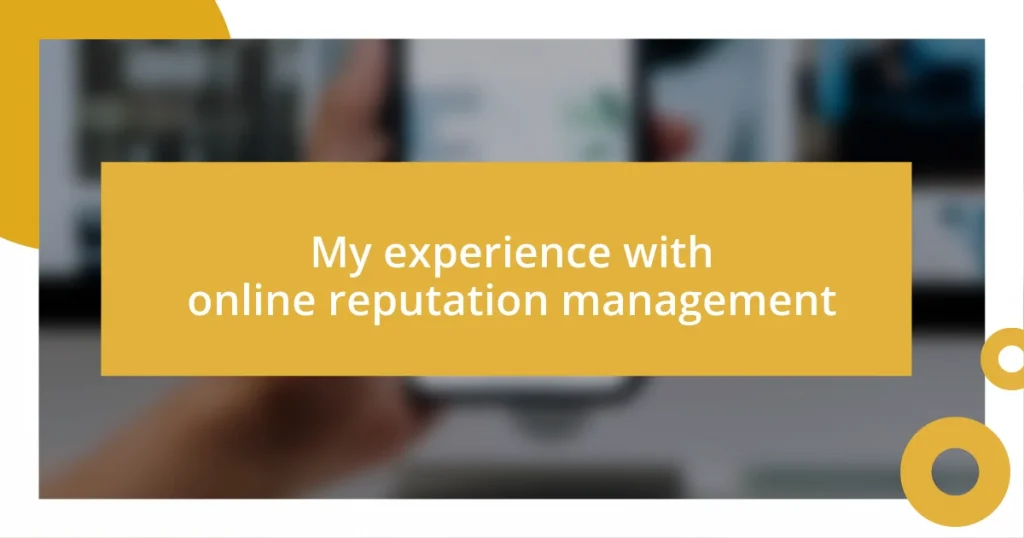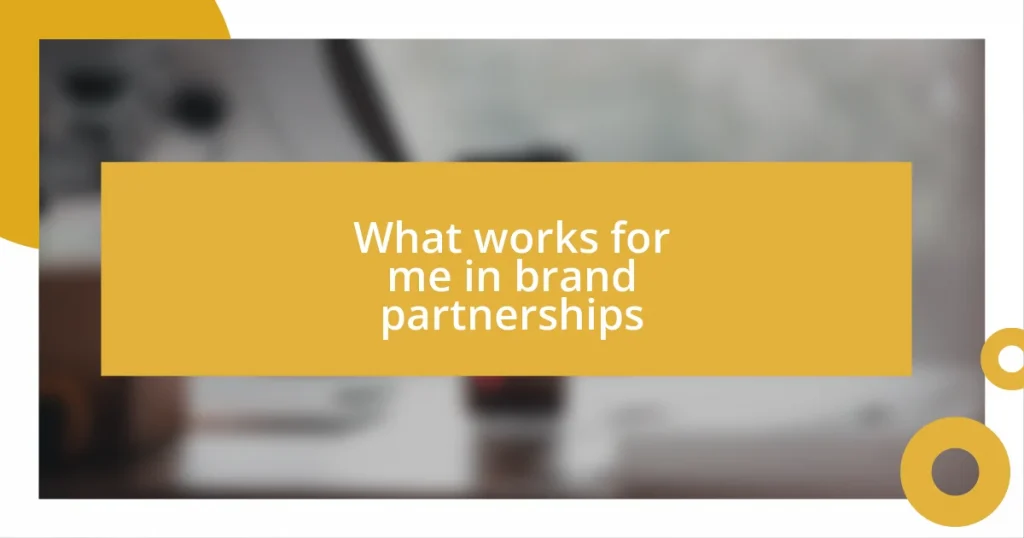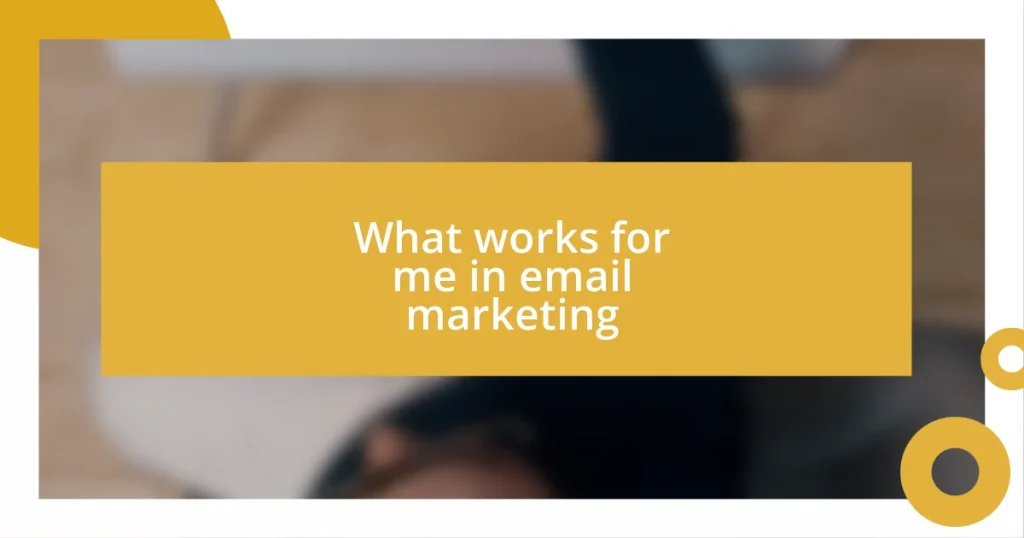Key takeaways:
- Online reputation management (ORM) is crucial for influencing public perception and protecting your business’s credibility in the digital space.
- Engaging with customers through feedback and sharing positive testimonials builds trust, enhances loyalty, and differentiates your brand from competitors.
- Measuring reputation success involves analyzing qualitative and quantitative metrics, allowing businesses to adapt strategies and foster community alignment with brand values.
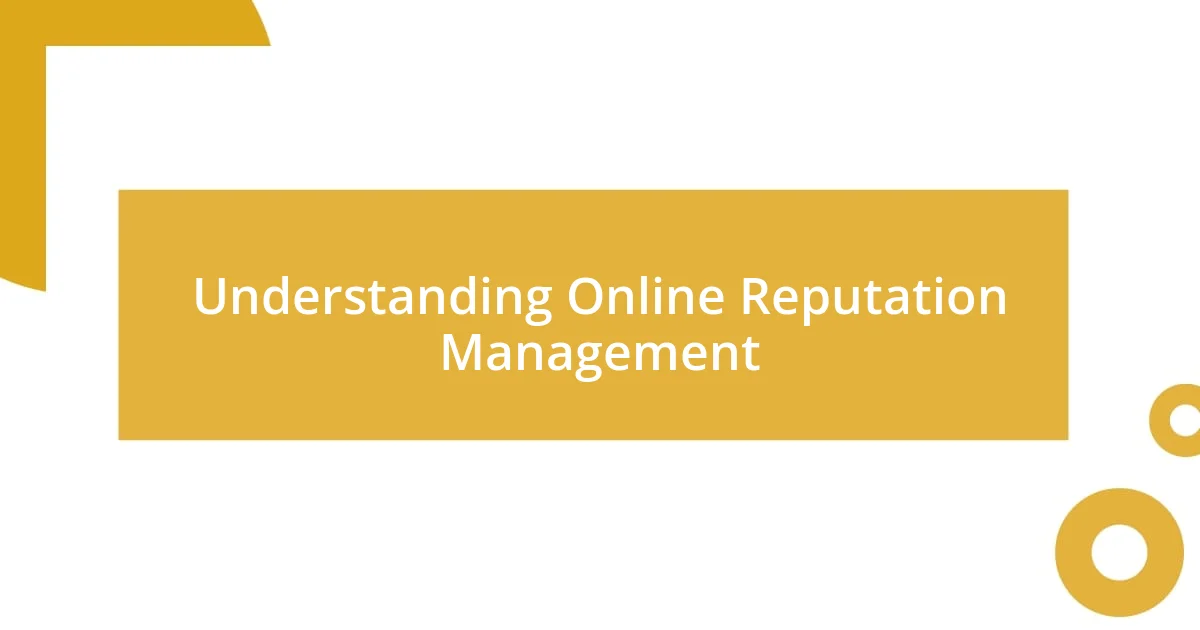
Understanding Online Reputation Management
Online Reputation Management (ORM) is essentially the practice of monitoring and influencing how you’re perceived on the internet. I still remember the moment when a negative review about my business popped up online—it felt like a punch to the gut. It made me realize how vital it is to actively manage perceptions because, in today’s digital landscape, what people say online can significantly impact your credibility and success.
When I first delved into ORM, I was struck by how much our online presence is a reflection of our real-world actions. How often do we look at reviews before trying a new restaurant or hiring a plumber? The weight of these digital opinions can be overwhelming. I’ve witnessed firsthand how a single tweet or post can spiral into a reputational crisis, leaving businesses scrambling to respond. It made me wonder—how prepared are we for such instances in our own lives?
ORM isn’t just about damage control; it’s about building a positive narrative too. I’ve found that proactively sharing positive stories or engaging with customer feedback creates a genuine connection. Have you ever engaged directly with your audience online? I can tell you that responding to even a single comment can turn a potential disaster into an opportunity to showcase your commitment to great service. It’s this delicate dance of visibility and response that makes ORM a crucial skill in our increasingly digital world.
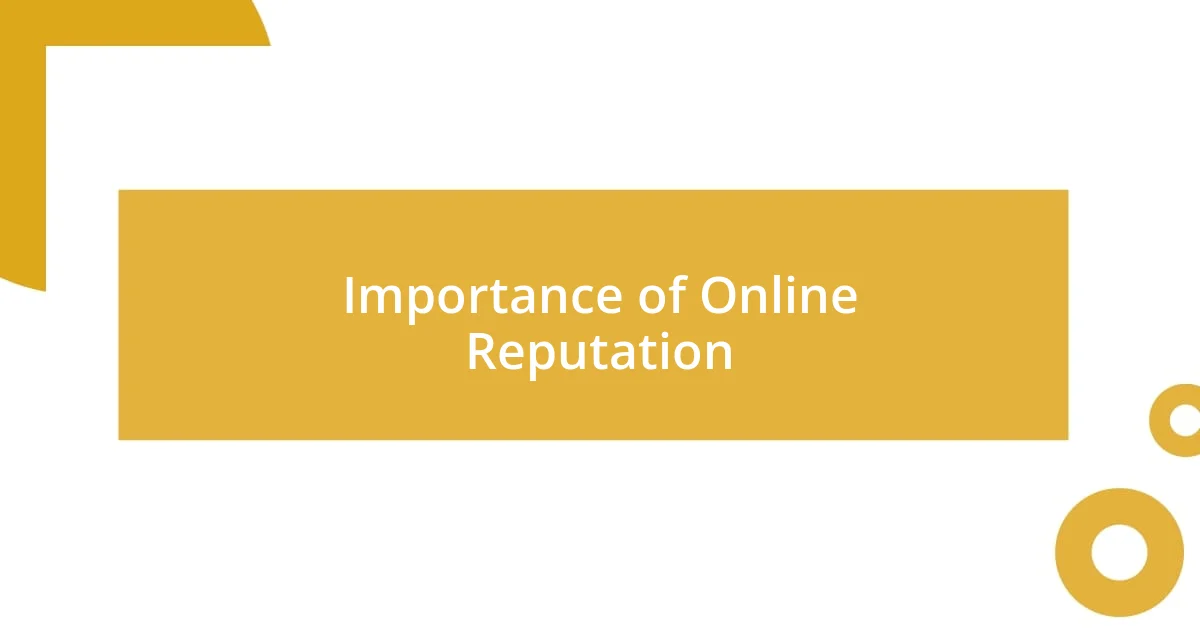
Importance of Online Reputation
Online reputation is paramount in today’s tech-driven environment, where people often turn to the internet to form opinions before making decisions. I remember when a friend of mine faced backlash from a poorly worded post. The aftermath was eye-opening; it didn’t just affect his business—his personal relationships felt the strain too. It highlighted just how intertwined our online and offline personas can be.
- Trustworthiness: A positive online reputation fosters trust among consumers, which is essential for building lasting relationships.
- Visibility: Brands with good reputations often appear higher in search results, helping potential customers discover their services more easily.
- Customer Loyalty: Engaging with consumers and managing their perceptions enhances loyalty, leading to repeat business and referrals.
- Competitiveness: In a crowded marketplace, a stellar online reputation sets a business apart from its competitors.
- Crisis Resilience: A strong reputation can act as a buffer during times of crisis, allowing businesses to weather storms that would otherwise be damaging.
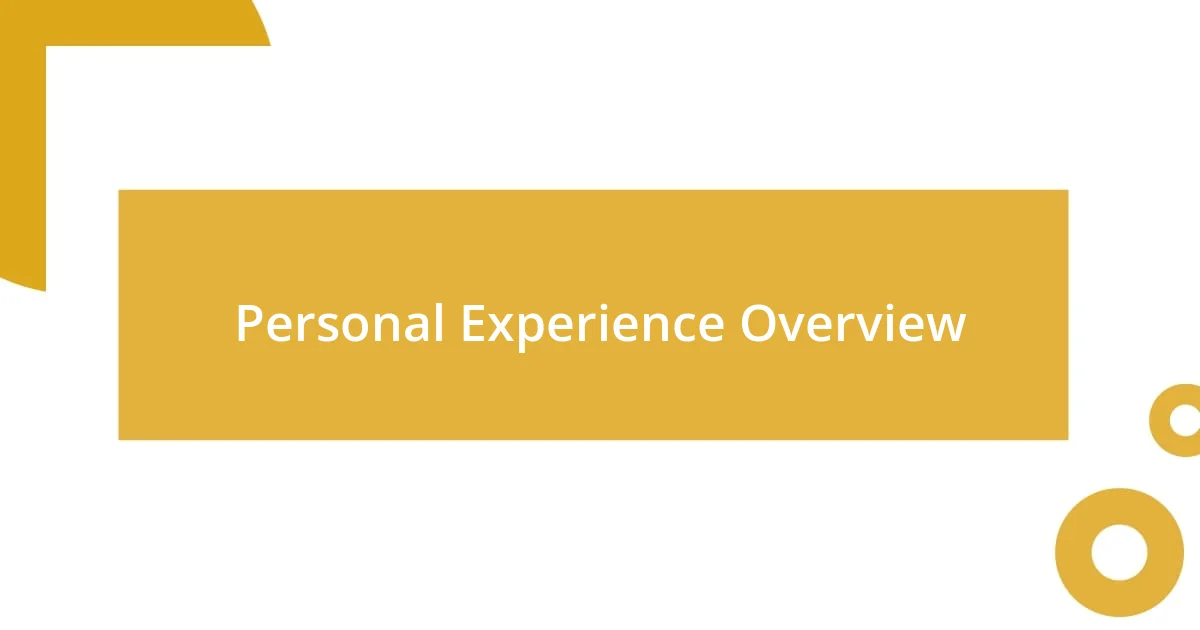
Personal Experience Overview
When I began exploring online reputation management, it felt a bit like a leap into the unknown. I vividly remember the first time I checked my business’s reviews—I was both nervous and curious. Finding an unexpected mix of glowing testimonials and harsh criticisms made me realize the life of our brands often hinges on these opinions. It was eye-opening to see how a couple of negative comments could impact my decisions and interactions moving forward.
In another instance, I once asked a few loyal customers to share their thoughts on social media. Their responses were not just feedback but a heartfelt endorsement. Seeing those positive words amplify our reach left me with an overwhelming sense of gratitude. Moments like this remind me that while managing reputation can be daunting, it is also a rewarding engagement with the community that supports you.
As I navigated the ORM waters, I discovered strategies that calmed my worries. Whether it was implementing a quick response system for reviews or crafting a personal narrative around my brand, these actions became pillars of my reputation strategy. Each step brought along its own set of lessons, leading me to appreciate the profound impact of genuine customer connections—after all, our reputation is not just built on facts but also on the emotions we evoke in our audience.
| Experience | Insight |
|---|---|
| First Review Check | Realized impact of mixed feedback |
| Encouraging Customers | Fostered community support |
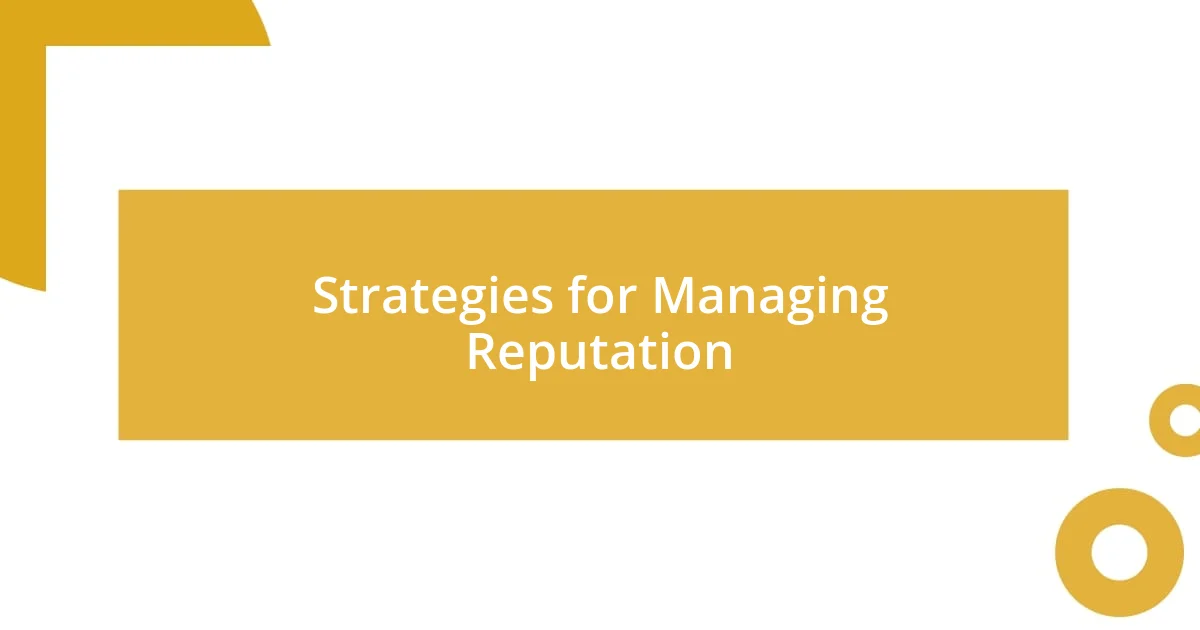
Strategies for Managing Reputation
One effective strategy I found is to consistently engage with your audience. I remember responding to a negative review with a heartfelt acknowledgment of the customer’s concern. That single response not only turned a frustrated customer into a loyal one but also showcased my commitment to addressing feedback publicly. Isn’t it fascinating how a genuine connection can transform perceptions?
Another tactic that worked well for me was regularly showcasing positive testimonials across various platforms. I decided to create a highlights reel of customer success stories on my website. This not only boosted my confidence—seeing all those happy faces—but it also provided potential customers with a solid reason to trust my services. Don’t you think that presenting real stories creates a relatable narrative that fosters trust?
Lastly, I’ve learned that proactively monitoring my online reputation is crucial. Using tools to track mentions of my brand was a game-changer. One time, I spotted a mention in a blog post that wasn’t entirely flattering. Instead of staying silent, I reached out to the author for a discussion. Not only did I manage to clarify the misconceptions, but I also built a relationship that led to future collaborations. Isn’t it amazing how being proactive can turn potential negatives into positives?
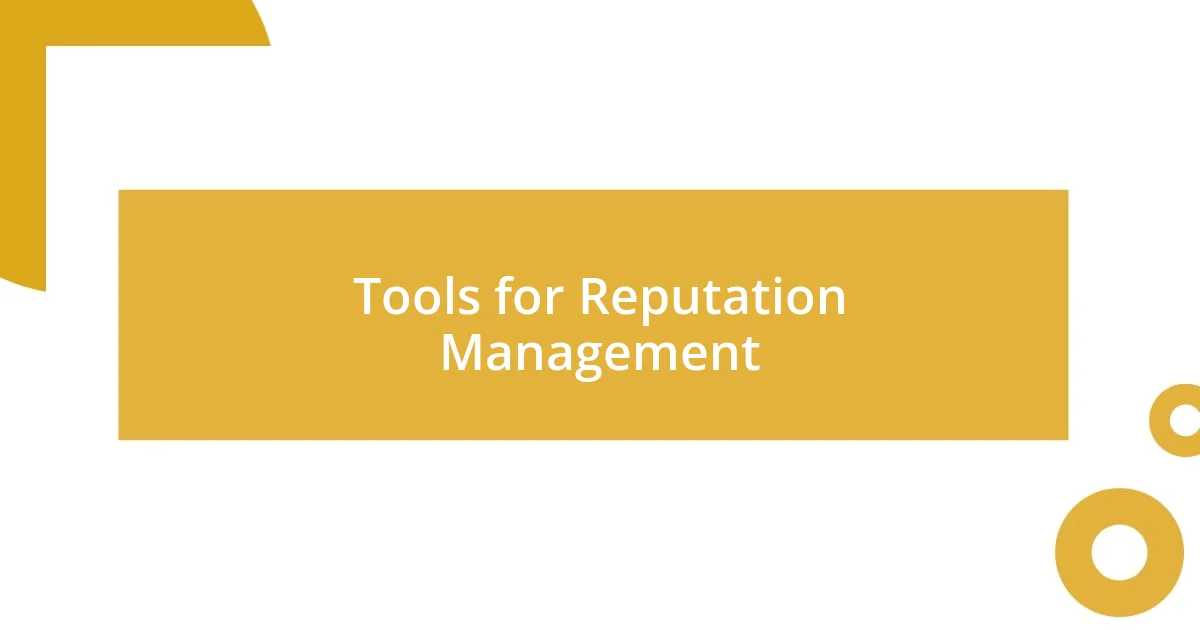
Tools for Reputation Management
When it comes to tools for reputation management, I found that utilizing platforms like Google Alerts and Mention has been a revelation. I remember setting up alerts for my brand name and feeling a sense of relief knowing I would be notified instantly whenever someone mentioned us online. It made monitoring real-time feedback not only manageable but also empowering—like having my finger on the pulse of public perception at all times.
Another tool that truly made a difference is Hootsuite. I began scheduling and sharing engaging content to showcase our brand’s personality while monitoring what people were saying about us across social media. One evening, I happened upon a tweet from a customer singing our praises, which I promptly retweeted. It made me realize how sharing positive interactions not only boosts morale internally but also solidifies our reputation externally.
Finally, I’ve learned the immense value of reputation management software, such as Reputation.com. It streamlines the tracking of reviews and ratings across multiple platforms. I once ran a detailed report that highlighted trends in our feedback, revealing that while our customer service was celebrated, our delivery speed was a common complaint. This insight prompted me to take concrete steps for improvement, and I can’t stress enough how powerful data can be in shaping our strategy. How much clarity can you gain from a single report? It’s these tools, coupled with a proactive mindset, that truly enhance our reputation management efforts.
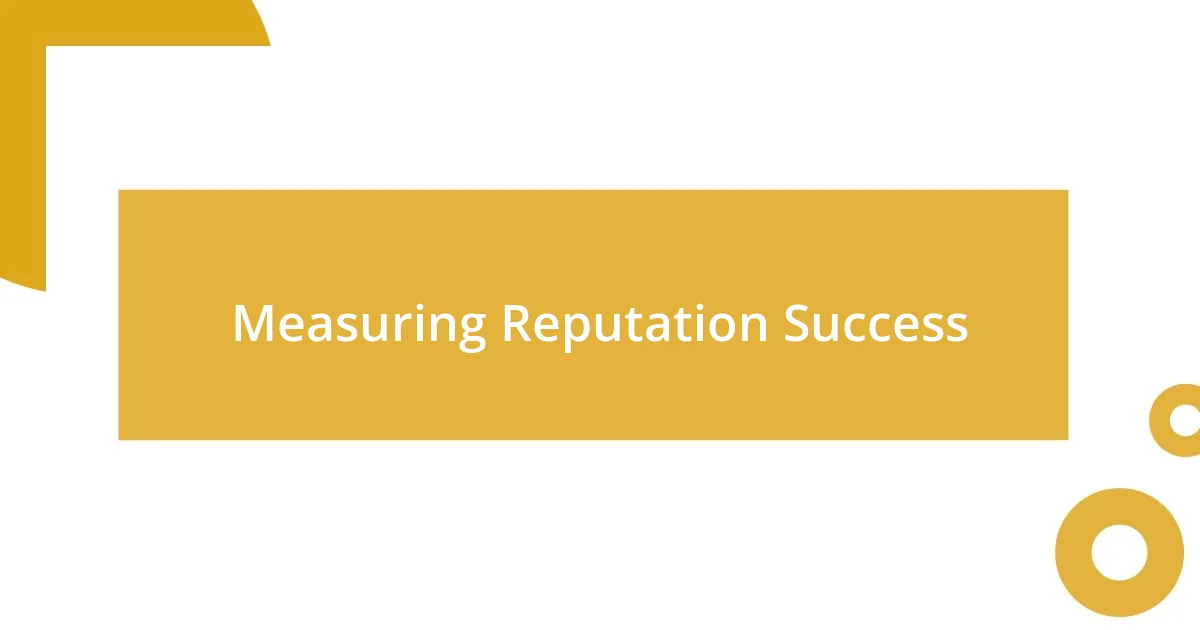
Measuring Reputation Success
To measure reputation success, I often turn to qualitative and quantitative metrics. For instance, analyzing customer feedback not just for star ratings but also delving into the language used offers a detailed understanding of public sentiment. After one particular campaign, I noticed a significant increase in positive phrases like “trustworthy” and “reliable,” which truly validated our efforts. Doesn’t it feel rewarding to see your hard work reflected in the words of your customers?
Engagement rates on social media can also be telling. I remember a time when a post highlighting our commitment to sustainability went viral. The shares and comments didn’t just spike; they generated conversations that showcased our brand values. It made me realize that the interaction we foster is more than just numbers; it builds a community that aligns with our mission. How often do we overlook the power of a single post in shaping our narrative?
Ultimately, tracking reputation requires a mix of intuition and analysis. I began sharing regular reports with my team, highlighting trends and areas for improvement. One report revealed a rise in inquiries after we launched a Q&A session online, indicating that transparency breeds trust. Isn’t it fascinating how metrics can guide our next steps in this ever-evolving digital landscape? Measuring success isn’t just about numbers; it’s about understanding the stories behind them.
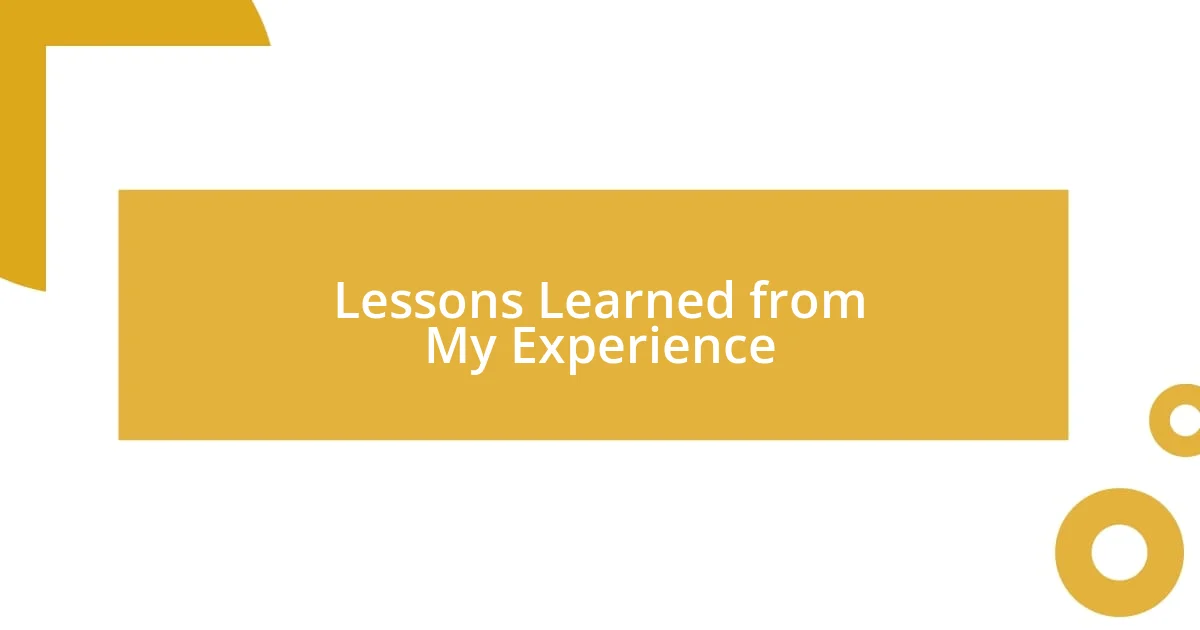
Lessons Learned from My Experience
Throughout my journey with online reputation management, I’ve learned that a personal touch can make all the difference. One time, after addressing a less-than-stellar review directly and transparently, I received a heartfelt response from the customer. They were not only appreciative of my engagement but also became loyal advocates for our brand. Isn’t it amazing how a simple conversation can turn a critique into a connection?
Another lesson that struck me was the significance of consistency. I recall a phase when we were inconsistent in our online interactions. Our engagement dropped, and I found myself scratching my head about the dip in positive feedback. Once I prioritized regular communication and interaction, it was like a switch flipped. People responded, and our reputation began to flourish again. I learned quickly: consistency isn’t just a strategy; it’s a commitment to fostering trust.
Lastly, I discovered the importance of resilience in managing reputation. There was a time when an unexpected crisis hit us hard online. Instead of shying away, I chose to tackle it head-on with honesty and clarity. Facing challenges directly may feel daunting, but I realized that transparency during tough times can build a stronger foundation for future trust. Why hide when authenticity can turn a storm into an opportunity for growth?










